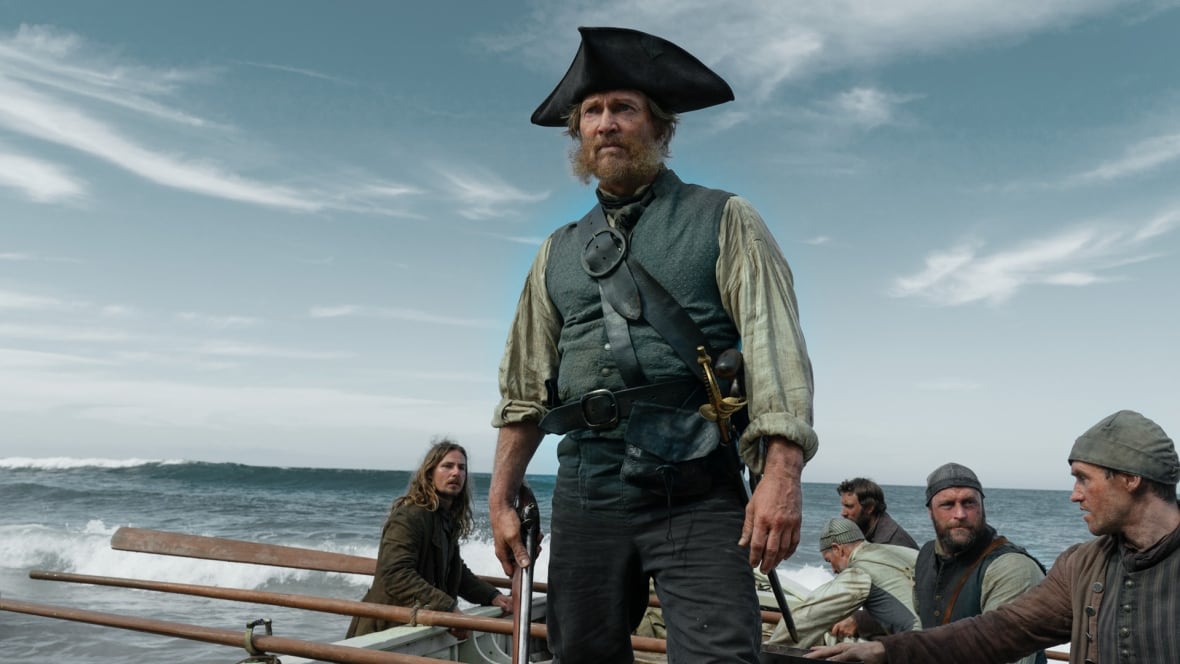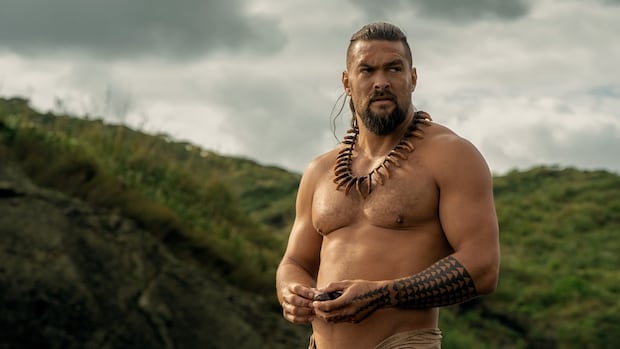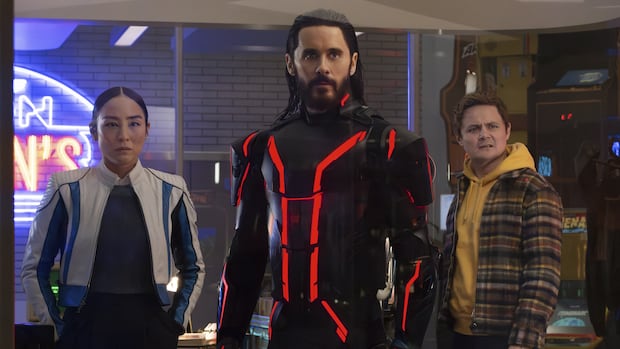A battle-weary warrior, seeking peace in obscurity. A tyrannical, war-mongering ex-leader pulling him out of self-imposed banishment to fight once again. A prophecy; a calling. A sweeping, blood-drenched epic in which the ensuing military conflict will surely define the politics and culture of the region for many years to come.
No, this is not Brad Pitt in Troy. Instead, it’s Jason Momoa in Chief of War, the newest gambit by Apple TV+ to capture eyeballs and attention with prestige television — focusing, instead of ancient Greece, on 1700s Hawaii.
And don’t be fooled: This era of history is every bit as full of intrigue as any sword-and-sandals tale. But although it includes no less a personality than King Kamehameha I, Momoa actually stands in the shoes of a slightly less well-known figure. At least not as well known today.
He is Kaʻiana: a fearsome chief, a legendary soldier and a major player in the 18th-century war between the four kingdoms of the Hawaiian islands — a man at one time known as the “most famous Hawaiian in the world,” fighting in a war waged to create a unified Hawaii, though it was fought in the shadow of the early stages of European contact and colonization.
And it was one directly influenced by the unique knowledge and experience wielded by Ka’iana, who became one of the first Hawaiians to travel with Western explorers. His return would bring knowledge, technology and a series of decisions that would rock the historical record and paint Kaʻiana — depending on whom you ask — as either a hero or a traitor.
WATCH | Chief of War trailer:
This is not to say that Chief of War is a history lesson. As noted by the New York Times, the plot plays a little fast and loose with its source material.
Still, the tale is so obviously cinematic, it’s a wonder no one made it until now. (While a movie starring Dwayne Johnson as Kamehameha I, The King, is theoretically in the works, it’s been in development since at least 2018.) But it’s also been on writer, director and star Momoa’s mind for more than a minute.
The series, created and co-written by Momoa and Thomas Pa’a Sibbett, has been in production for about 10 years, enlisting a veritable mountain of cultural consultants and language experts. The majority of the story is told in the Indigenous language Olelo Hawai’i.
The language is just one component of an obvious and wider devotion to the subject material. While something like the comparable series Shogun focused its colonial tale largely through the eyes of a white explorer thrust into a “foreign” world, Chief of War focuses its vision squarely through the eyes of its Polynesian heroes (and villains).
At least this is true for the first two episodes — the only two that reviewers are currently allowed to comment on while waiting for the subsequent seven to be released weekly into mid-September. But right away, the actions on screen do a perfect job of telegraphing the type of story audiences can expect.
First, there’s a dizzying cast of characters — suffused with enough intrigue, subterfuge and confusing backstories to suggest Momoa was keeping an inspirations journal during his time on Game of Thrones.
Then, there’s an impressive level of commitment to character and gravitas to the acting — even if the performances occasionally dip into the dour. This is particularly true of Momoa, who reminds viewers he has more talents to flex than just the muscles stretching his Aquaman costume or the comedic chops visible through the disappointing seams of A Minecraft Movie.
There are also the violent battles and the backroom double-crosses. But more, there is a worldview often dismally lacking in stories told about life on the islands. Particularly, there’s a sort of nihilistic, barbed tone in this series that infuses a story — ostensibly about a hero’s journey set on an idyllic paradise on Earth — with a radical darkness and cutting commentary.
By comparison, consider Disney’s Lilo & Stitch live action remake. That movie, despite becoming the first this year to earn a billion dollars, sparked a sizable backlash against an updated ending. Without getting into the spoiler specifics, some argued that a sanitized, boardroom-friendly change around an Indigenous woman’s fight for custody reinforced pro-colonial messaging.
And according to culture critics, fans and Hawaiian scholars, it did so at the expense of the original’s subtly bitter and ironic criticism of visiting outsiders — “haoles” who, University of Chicago assistant professor Uahikea Maile told CBC News, blithely fetishize a stereotypically touristic idea of Hawaii, rooted more in hula skirts and luaus than actual people, nations and histories.
Shifting narratives
That White Lotus-esque vision of Hawaii was birthed out of a century of movies depicting native Hawaiians as passive, benevolent and without agency: “hula girls” with outstretched arms, existing solely to welcome grinning boatloads of sunscreen-slathered Americans; movies that exist to show Hawaii as a lush garden divorced from time or reality, strife or context.
This is not Chief of War. Like Troy, this is a story about destiny, fate and fatalism. Early on, Kaʻiana hears prophecies about both his islands and himself. And early on, he seeks to unite the future he wants for both through his skills and strength.
The results — both before the episodes start, as they play out and after — are of blood-soaked failure. Futility, strife and pointlessness seep from the edges of an almost-too-serious story — one that, at times, begins to drag due to the complicated and hard-to-follow character interconnections and the sheer heaviness of tone.

But it is also one that re-centres Hawaii as a real place, with revolutions and histories as messy and deep as any on the mainland. Both Kaʻiana and Hawaiians are the focus, and their stories are dark, hopeful and complex. It’s evident right from the opening credits — showing the royal Hawaiian colours of red and yellow slowly subsuming the green forests and grasslands of the islands.
Chief of War does not exist to sell you on a vacation. The subject here is prophecy, pointlessness and war — and the people caught up in it. There is little more eminently human than that.







